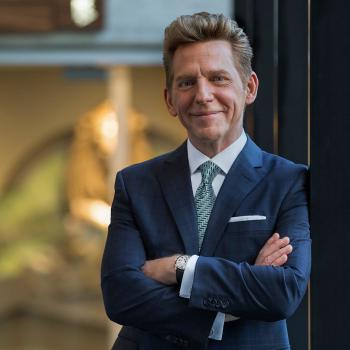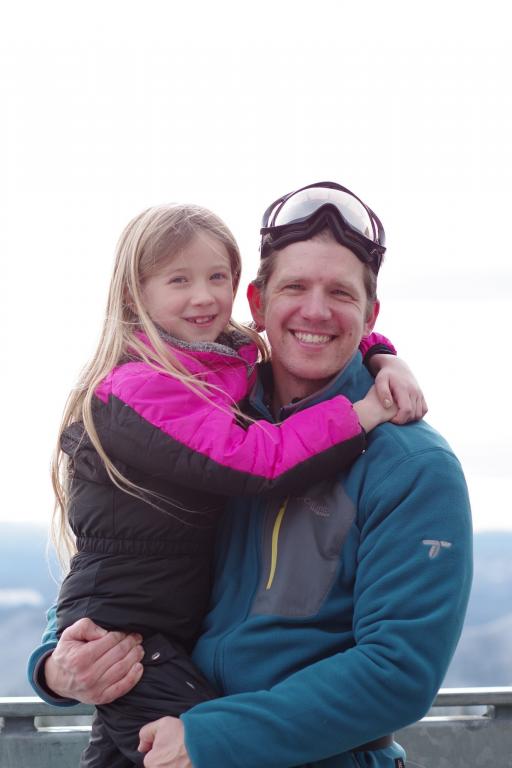 As a Minister of the Church of Scientology, I often field questions from ministers or pastors of other religions, asking, “What does Scientology believe in”?
As a Minister of the Church of Scientology, I often field questions from ministers or pastors of other religions, asking, “What does Scientology believe in”?
I usually answer that Scientologists are a mixed lot, and it’s hard to answer for them all. But as for me, I believe that each person is an immortal spiritual being, and that we are basically good. That we are all trying to survive, and that some of us are doing a better job of that than others.
Then I usually tell them that the more important question is, “What do Scientologists do?”
There I can usually wax enthusiastic:
— We spend a lot of time studying. I recently finished a “basics” extension course that covered all the basic books of Scientology, that probably took 200 hours of my time to complete, over the course of a couple of years. It takes a commitment of time to be an active Scientologist.
— We counsel each other, and help alleviate our personal problems in a way that puts us at cause over life, instead of at the effect of life. There’s a whole technology of how to do this so it actually works – that’s what we’re busy studying.
— We volunteer a lot of our time and money to aid those hit by disasters. You’ll find Scientology Volunteer Ministers helping out, boots on the ground, bringing succor to those in need, after major disasters. Those Scientologists who can’t go help out themselves, often help support others who do. We’re good at this kind of help, and our help is often sought out and usually very well received. We’ve worked with the Red Cross and first responders, innumerable times in disaster relief.
— We sponsor and work in groups that offer “how to study” courses, to help kids and adults learn how to study.
— We support groups that offer drug education and drug rehabilitation – we see drugs as a root cause of the decline of this civilization, and we are active in helping educate those who are likely to take drugs (so they don’t) and to rehabilitate drug addicts.
— We are active in supporting efforts to rehabilitate criminals through education in a common-sense moral code.
— Many Scientologists spend their days working full-time as staff members at their local Scientology church. It’s an honored position; typically we think very highly of our church staff. They work long hours, receive very modest pay for their efforts, and usually have a terrific esprit de corps. I spent the decade of the 1970’s as a staff member and still keep in touch through Facebook now, with many of the friends I made then. Some of my favorite people on this Earth have been Scientology staff members for more than 40 years.
— But most Scientologists are not our dedicated staff members – they are out in their community, doing their best to run (or work in) businesses that contribute something to bettering the survival of this world. Or as stay-at-home moms (or dads!) who are concentrating on raising their families. You won’t find many Scientologists working in drug companies, as psychiatrists or in shops selling medical marijuana, munitions factories, or gossip magazines.
If an activity is overall more harmful than helpful, it’s unlikely we’ll be there. You’re more likely to find us being nurses, doctors, insurance agents, lawyers, restaurant owners, farmers, ranchers, consultants, pilots, salespeople, writers, musicians, entertainers, etc. There are a lot of us – we hold many different positions of responsibility in this society We tend to be productive – one of our basic courses is about “personal efficiency” – for good reason. We believe capability and ability are important facets of a person, and this requires someone to actually DO something worthwhile, to be of some service that they can exchange with others to good result.
We tend to think of “survival” as a gradient scale, going from basically “dead” up through many levels to affluence and power in any area; the only guarantee of survival being abundance.
We tend to look at what the actual condition of something is, and how it can be improved, and whether it would be worthwhile to do so. So, although there are no injunctions in Scientology against being in a particular profession, when one studies Scientology, one tends to look at whether what one is doing will help oneself, one’s family, the groups one belongs to, mankind, and the environment. People studying Scientology realize things about themselves and what they have been doing with their lives, and often will make changes to what they are doing that make it more successful, more helpful, and more productive. (As well as being a religion, it has an “applied religious philosophy” that is very helpful.)
Idleness, laziness and Scientology are virtually incompatible. Other religions have variations of “idle hands make the Devil’s work” – we have a saying, and I’ve always found this to be true: “Production is the basis of morale.” We don’t think sloth is a “sin”, per se, but we don’t encourage it.
If someone I know seems despondent when I talk to him, my first inclination would be to ask him, “So, what are you doing these days?” And encourage him to go forth and produce!








